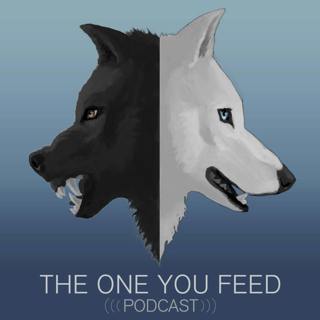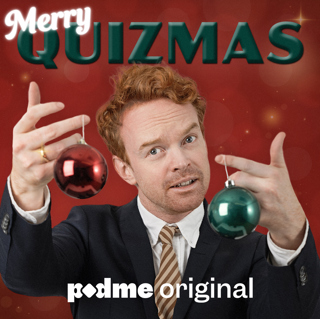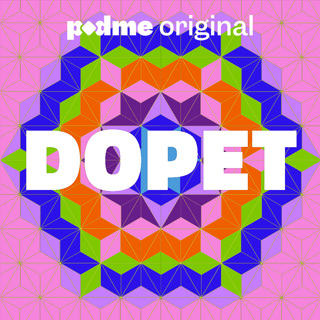
Kino MacGregor
This week on The One You Feed we have Kino MacGregor.We interviewed Kino after one of her weekend yoga retreats that she held in Columbus. We talked upstairs in a loft above the meeting space. She was warm, engaging and wise.She is an international yoga teacher, author of two books, producer of six Ashtanga Yoga DVDs, writer, vlogger, world traveler, co-founder of Miami Life Center (www.miamilifecenter.com) and founder of Miami Yoga Magazine (www.miamiyogamagazine.com). Her YouTube channel reached more than 2 million views within the last year(www.youtube.com/kinoyoga). She is one of a select group of people to receive the Certification to teach Ashtanga Yoga by its founder Sri K. Pattabhi Jois in Mysore, India and practices through the Fourth Series of Ashtanga Yoga.Without any background in movement training Kino tried her first yoga class when she was nineteen. Three years later, she joined Govinda Kai’s Mysore-style classes in New York City and became a dedicated Ashtanga yoga practitioner. After seven months of traditional Ashtanga practice Kino traveled to Mysore, India to meet her true teacher, Sri K. Pattabhi Jois (“Guruji”). Upon her return she began real self-practice by practicing alone and devoting herself entirely to the study and teaching of Ashtanga yoga. After seven years of consistent trips to Mysore, at the age of 29, she received from Guruji the Certification to teach Ashtanga yoga and has since worked to pass on the inspiration to practice to countless others.In This Interview Kino and I Discuss...The One You Feed parable.Keeping your peace of mind regardless of the circumstances.How hard yoga can be.How yoga intentionally challenges your nervous system.Save Time, Save Money and Support the Show!! Go to Harry's and Use Promo Code: oneyoufeed to get $5 off your first order.Retraining the habit pattern of your nervous system.Walking the middle path.Not craving pleasure and pushing away pain.Taking what you learn during yoga out into the world.The value of surrendering to a method.Finding a genuine teacher.Yoga as a spiritual practice.Yoga and meditation in a secular setting.Using physical limits as a mirror for the inner journey.Her story of becoming a yoga teacher.Her depression, searching and questioning.Learning to not force everything.Meeting her teacher.The definition of truth as "what works".How what works one day may not work the next day.The multiple versions of the truth.The paradox of ambition versus acceptance.Balancing efforts between striving and not attachment to results.How depression can be the ultimate quitting.That love doesn’t make the pain go away but love is still bigger.Kino MacGregor LinksKino MacGregor homepageYoga for Beginners with KinoAshtanga Yoga:Primary Series with Kino MacGregorAshtanga Yoga: Intermediate Series with Kino MacGregorThe Power of Ashtanga Yoga: Developing a Practice That Will Bring You Strength, Flexibility, and Inner PeaceSacred Fire: My Journey Into Ashtanga YogaKino MacGregor You Tube channelKino MacGregor on Twitter Some of our most popular interviews you might also enjoy:Mike Scott of the WaterboysRich RollTodd Henry- author of Die EmptyRandy Scott HydeSee omnystudio.com/listener for privacy information. See Privacy Policy at https://art19.com/privacy and California Privacy Notice at https://art19.com/privacy#do-not-sell-my-info. Learn more about your ad choices. Visit megaphone.fm/adchoices
9 Jul 201439min

Dan Harris
This week on The One You Feed we have Dan Harris.Dan is best known for his work on ABC News, Nightline and Good Morning America, but we invited him on the show because of his latest book: 10% Happier: How I Tamed the Voice in My Head, Reduced Stress Without Losing My Edge, and Found Self-Help That Actually Works--A True Story.I was fascinated by this book. Dan was driven to meditation and self help out of a self imposed crisis after he had a panic attack on national TV. His journey through that landscape mirrored my own to some degree. He had a degree of skepticism from the beginning that he retains today. He also was perplexed by the paradox that most fascinates me: What is the degree that serenity can erode our ambition?Going from the esoteric teachings of Eckhart Tolle to the down to earth practical modern buddhism of Mark Epstein (author of the classics Going to Pieces Without Falling Apart and Thoughts without a Thinker) he was able to find an approach that worked for him. The book is insightful, hilarious and very instructive.In This Interview Dan and I Discuss...The One You Feed parable.That the mind can be trained for compassion and happiness.Exercising the brain just like the body.The science of meditation.The message for people who are skeptical of meditation.The voice in my head is an asshole.10% happier not unicorns and rainbows.What meditation isn't.Reading Eckhart Tolle.Our tendency to focus on the bad things and ignore the good.The difference between constructive anguish and useless rumination.The difference between pain and suffering."the craving to be elsewhere, to be otherwise, permeated my life"The tendency to project into the future."The background static of perpetual discontent".How we are like colicky babies who are never quite satisfied.His conflicted view on the tendency to never be satisfied.How dissatisfaction can drive us forward.When it is useful to keep pushing and when is it better to back down?The happiness set point theory.Raising our emotional set point.Ambition versus satisfaction.Motivation coming from happiness versus pain.Not being attached to the results.Romanticizing melancholy.How a certain amount of stress is necessary.Being happy does not work at cross purposes to being successful.Dealing with failure.How when our minds wander we are less happy.Meditation in less than 140 characters.Remembering to feed the good wolf.How one of the meanings of mindfulness is remembering.Training to be less of an asshole.Dan Harris LinksDan Harris page on ABC NewsPurchase 10% HappierDan Harris on Twitter Some of our most popular interviews you might also enjoy:Mike Scott of the WaterboysRich RollTodd Henry- author of Die EmptyRandy Scott HydeSee omnystudio.com/listener for privacy information. See Privacy Policy at https://art19.com/privacy and California Privacy Notice at https://art19.com/privacy#do-not-sell-my-info. Learn more about your ad choices. Visit megaphone.fm/adchoices
1 Jul 201440min

Lewis Howes
This week on The One You Feed we have Lewis Howes.I first talked with Lewis when he reached out to us shortly after our launch of the show to introduce himself. He noticed we were from Columbus, Ohio where he used to live. It was a truly kind gesture and it was awesome for us to talk with someone so successful in the podcasting world. He invited us to join his excellent podcasting network, The Integrity Network.We were lucky enough to make this another in person interview. We visited Lewis in his West Hollywood apartment. Lewis is one of those people who seem to have it all together and have the perfect life. But it wasn't always that way for him. He grew up feeling alone and like he didn't belong. He suffered awful childhood sexual abuse. He had a great deal of trouble learning to read, he thought he was stupid. An injury ended his athletic career at.Like all people, he has faced adversity. In our conversation he discusses how he has overcome that adversity. He also names the ability to overcome adversity as the trait that most stands out from all the amazing people he has talked with on his podcast, School of Greatness.We had a lot of great discussion before and after the podcast. Lewis pressed me on some decisions I make in my life and gave me a lot to think about. He was generous, kind and extremely helpful and suppotive.In This Interview Lewis and I Discuss...The One You Feed parable.The importance of the environments we place ourselves in.Feeding the bad wolf.Learning to come from a place of kindness versus defensiveness.Growth mindset vs the fixed mindset.The importance of perspective.Avoiding the victim mindset.Using inner and outer feedback.How to be a better communicator.Not taking things personally.His definition of greatness.The poison of comparison.Growing more resilient and courageous.Turning things into a game.The goal of life.Falling in love with pain.Using pain to get stronger.Not resisting.His adventure with the US National Handball team.His upcoming book.His dream of being an Olympian.The key to success=consistency.See omnystudio.com/listener for privacy information. See Privacy Policy at https://art19.com/privacy and California Privacy Notice at https://art19.com/privacy#do-not-sell-my-info. Learn more about your ad choices. Visit megaphone.fm/adchoices
25 Jun 201438min

Lama Kathy Wesley
[powerpress] This week on The One You Feed we have Lama Kathy Wesley.Wow...episode #30. Thanks to all of you listening out there.Chris setting up at KTCThis interview was the 2nd interview we ever conducted and our longest episode we have ever aired. We conducted the interview at Lama Kathy's meditation center. It is a beautiful facility and a great room to record in.Early on we thought it would be a good idea to talk as long as we could and then edit it down to our usual ~30 minute time frame. We learned the hard way that editing that much material is very time consuming and painful. It's painful because there are so many great insights that it hurts to limit it. I think we talked with Lama Kathy for over 90 minutes. We were simply unable to get much below an hour for the total because it was such a great interview.We conducted it at the Columbus meditation center where Lama Kathy is the resident teacher. It is called Karma Thegsum Choling (KTC) and is a Tibetan meditation center. It is part of the Kagyu lineage which stretches back in an unbroken line of teachers to the 10th century.Lama Kathy is the resident teacher at KTC and is in frequent demand, teaching at centers throughout the US. She has been a student of Khenpo Karthar Rinpoche since 1977. She participated in the first three-year retreat led by Khenpo Rinpoche at Karme Ling Retreat Center in upstate New York, and thus earned the title of “retreat lama.” She is a graduate of Ohio State University with a bachelor's degree in journalism and lives in Newark, Ohio with her husband, Michael.In This Interview Lama Kathy and I Discuss...Her spiritual path.How she became a Buddhist lama.The one teaching that is most important.How her life no longer belongs to her, but to everyone.The reason to pursue spiritual teachings.How spirituality is evolutionary.That people come to spiritual path out of pain or confusion.The importance of a spiritual method or technique.How our stories in our mind change as we quiet the mind.How some relief from our own pain and suffering makes it easier to help others.Approaching the spiritual path.The value of a good teacher.The different approaches to meditation.The one you feed parable.How happiness and suffering arrive from the inside.The universality of truth.The importance of picking a path and sticking to it.How egotism can co-opt anything.Spiritual materialism.The obstacles we face on the path of spirituality.Doubt.The beer commercial approach to spirituality.The danger of expectations.The difference between effort and struggle.How love and compassion are always the answer.Relative vs universal compassion.Lama Kathy LinksLama Kathy HomepageColumbus Karma Thegsum CholingThe Karma Kagyu LineageDharma Paths book recommended by KathyLama Kathy on TwitterThe 17th Karmapa on TwitterSome of our most popular interviews you might also enjoy:Mike Scott of the WaterboysRich RollTodd Henry- author of Die EmptyRandy Scott HydeSee omnystudio.com/listener for privacy information. See Privacy Policy at https://art19.com/privacy and California Privacy Notice at https://art19.com/privacy#do-not-sell-my-info. Learn more about your ad choices. Visit megaphone.fm/adchoices
17 Jun 20141h 1min

Jon Wurster
This week on The One You Feed we have Jon Wurster.Jon Wurster is an American musician and humorist best known as the drummer for indie rockers Superchunk, The Mountain Goats and Bob Mould as well for his comedic work with radio host Tom Scharpling on the The Best Show on WFMU.Wurster has recorded and/or performed live with artists such as Bob Mould, Jay Farrar, Ben Gibbard, Robert Pollard, Katy Perry, The New Pornographers, Rocket from the Crypt, Ryan Adams, R.E.M., Guided by Voices, Marah, Alejandro Escovedo,A.C. Newman, Chris Stamey and Peter Holsapple, Inspiral Carpets, The Minus 5, and Charlie Daniels.Wurster is one half of the radio comedy team Scharpling and Wurster. Tom Scharpling is the longtime host of The Best Show on WFMU radio program. The duo have been releasing CDs on their Stereolaffs label since 1999. Their most recent album is 2007's The Art of The Slap. Scharpling and Wurster have collaborated in music videos written and directed by Tom Scharpling and starring Wurster. The videos were created for The New Pornographers, Aimee Mann, and The Postal Service.Wurster has written for television shows such as Your Pretty Face is Going to Hell, Monk, Squidbillies, Tim and Eric Awesome Show and Tom Goes to the Mayor.In This Interview Jon and I Discuss...The One You Feed parable.The importance of acknowledging the bad wolf.Some of his favorite personal development books.Learning to take what you like from books and leaving the rest.His early depression.WordHate™His dislike of the ukulele music trend.Not trusting people from different social circles.His comedy with Tom Scharpling on The Best Show on WFMU.His favorite character from The Best Show.His touring schedule.His decision to stop drinking.The negative downward cycle of drinking.The enjoyment of playing sober.The music he turns to for inspiration.Getting started in music.Playing rock music with Stephen Dubner.Remembering that we are all "works in progress".The importance of self-awareness.Learning to guide our behavior by how it makes us feel. Jon Wurster LinksJon Wurster on TwitterSterolaffs-The home of Wurster and SchaprlingThe Best Show on WFMU ArchivesBest Show Gems- Almost exclusively Jon's phone calls.Superchunk HomepageThe Mountain Goats homepageBob Mould homepage Some of our most popular interviews you might also enjoy:Mike Scott of the WaterboysRich RollTodd Henry- author of Die EmptyRandy Scott HydeSee omnystudio.com/listener for privacy information. See Privacy Policy at https://art19.com/privacy and California Privacy Notice at https://art19.com/privacy#do-not-sell-my-info. Learn more about your ad choices. Visit megaphone.fm/adchoices
10 Jun 201438min

Anna David
This week on The One You Feed we have Anna David.I met Anna at her studio in Los Angeles where she records the AfterParty Pod. If I didn't insist on trying to keep the conversation close to 30 minutes we might still be talking.Anna David is the New York Times-bestselling author of the novels Party Girl and Bought, the non-fiction books Reality Matters, Falling for Me, By Some Miracle I Made It Out of There and True Tales of Lust and Love and the Kindle Singles Animal Attraction and They Like Me, They Really Like Me.She was the sex and relationship expert on G4’s Attack of the Show for over three years and is a regular guest on The Today Show, Fox News’ Hannity and Red Eye, The CBS Morning Show, Dr. Drew, The Talk, Jane Velez-Mitchell, Inside Edition and various other programs on Fox News, NBC, MSNBC, CTV, MTV News, VH1 and E. Her Sirius radio show was the network’s number-one specialty show and she’s written for The New York Times, The LA Times, Details, Playboy, People, Cosmo, Us Weekly, Redbook, Maxim, Movieline, Women’s Health, Vice, The Daily Beast, The Huffington Post,Buzzfeed, xojane and Salon, among many others. She has been an editor at the websites Styleclick, Dipdive and The Fix, an assistant editor at Parenting and a staff writer for Premiere. In 2011, she created the storytelling show True Tales of Lust and Love (now a web series for Ish Entertainment and soon to be a comedy pilot), which she hosted until it closed in 2014.In 2013, Anna created TheAfterPartyGroup, which is made up of articles and a podcast focused on de-stigmatizing addiction. She sold the company in 2014 but continues to run the site and podcast. She speaks on television and at colleges across the country on addiction and is on the board of The Peggy Albrecht Friendly House, the oldest women’s recovery house in the US.In This Interview Anna and I Discuss...The One You Feed parable.Not knowing that we have a choice in how we feel and think.Understanding that we have some control in our happiness.How self obsession was making her so unhappy.The difference between sadness and self-pity.When to accept feelings and when to change them.How hard it is to tell what we can change and what we need to accept.How our default position tends to be negative.Feeling bad about feeling bad.The emptiness of acquisition.The different paths to addiction.Feeling that we need to take care of others emotions.Not settling.Always thinking that life is somewhere else in the future.Fear of looking vulnerable.Fostering cooperation instead of competition.Despair and Compare.Deciding to embrace the life we have.Comparing our insides to other people's outsides.How no one's life is perfect. Anna David LinksAnna David HomepageAnna's Podcast- AfterParty PodAfterParty ChatAnna David Author page on Amazon Some of our most popular interviews you might also enjoy:Mike Scott of the WaterboysRich RollTodd Henry- author of Die EmptyRandy Scott HydeSee omnystudio.com/listener for privacy information. See Privacy Policy at https://art19.com/privacy and California Privacy Notice at https://art19.com/privacy#do-not-sell-my-info. Learn more about your ad choices. Visit megaphone.fm/adchoices
3 Jun 201448min

Noah Levine
This week on The One You Feed we have Noah Levine.We were lucky enough to sit down with Noah in the Against the Stream headquarters in Los Angeles. Noah's teachings are core to everything that I have come to believe over the years. I'm really excited to present this interview.Noah Levine (born 1971) is an American Buddhist teacher and the author of the books Dharma Punx: A Memoir , Against the Stream, and The Heart of The Revolution. As a counselor known for his philosophical alignment with Buddhism and punk ideology, he founded Against the Stream Buddhist Meditation Society. As a youth, Levine was incarcerated several times. His first book, Dharma Punx, details teenage years filled with drugs, violence, and multiple suicide attempts—choices fuelled by disillusionment with American mainstream culture. His substance abuse started early in life—at age six he began smoking marijuana—and finally ended in a padded detoxification cell in juvenile prison 11 years later. It was in this cell where he hit "an emotional rock bottom" and began his Buddhist practice "out of a place of extreme drug addiction and violence".He recently started Refuge Recovery which is a community of people who are using the practices of mindfulness, compassion, forgiveness and generosity to heal the pain and suffering that addiction has caused. His new book is titled Refuge Recovery: A Buddhist Path to Recovery from Addiction.In This Interview Noah and I Discuss...The One You Feed parable.How he found Buddhism through his life failures.What "going against the stream" means.That the bad wolf has a stronger tendency in us and wins by default.How our capacity for kindness, generosity, and love have to be cultivated.Why the path of the Buddha is revolutionary.Going against the status quo.How to be in the world but not of it.The distinction between suffering and pain.The difference between craving and desire.Why suffering is not your fault.How the 1st Noble Truth normalizes the experience of suffering.The impermanent nature of all things.How we can never satisfy happiness through sense pleasure.How we layer suffering on top of our pain.Not asking "why" but instead asking "how do I respond"Meeting pain with compassion and kindness.Learning to include ourselves in our circle of compassion.The crippling power of doubt in our growth.The gradual nature of spiritual growth.How sometimes the first things we find in our spiritual practice is the bad stuff.His new program, Refuge Recovery. Noah Levine LinksAgainst the Stream homepageAgainst the Stream audio archivesNoah Levine HomepageNoah Levine Amazon Author Page Some of our most popular interviews you might also enjoy:Mike Scott of the WaterboysRich RollTodd Henry- author of Die EmptyRandy Scott HydeSee omnystudio.com/listener for privacy information. See Privacy Policy at https://art19.com/privacy and California Privacy Notice at https://art19.com/privacy#do-not-sell-my-info. Learn more about your ad choices. Visit megaphone.fm/adchoices
28 Mai 201445min

Rosalind Wiseman
This week on The One You Feed we have Rosalind Wiseman.Rosalind Wiseman is a teacher, thought leader, author, and media spokesperson on bullying, ethical leadership, the use of social media, and media literacy, she is in constant dialogue and collaboration with educators, parents, children, and teens.She is the author of Queen Bees and Wannabes: Helping Your Daughter Survive Cliques, Gossip, Boyfriends, and the New Realities of Girl World—the groundbreaking, best-selling book that was the basis for the movie Mean Girls. Her latest books, Masterminds & Wingmen: Helping Our Boys Cope with Schoolyard Power, Locker-Room Tests, Girlfriends, and the New Rules of Boy World was published in September 2013. In addition, she wrote a free companion e-book for high school boys, entitled The Guide: Managing Douchebags, Recruiting Wingmen, and Attracting Who You Want.In This Interview Rosalind and I Discuss...The One You Feed parable.Handling negativity in a positive way.The importance of the people and the things that choose to be surrounded by.How we all need a language which to communicate our emotional experience.The different expectations for boys and girls.The unwritten rules that try to force us into a box.How social status is often determined by how well we fit into these unwritten rules.How men battle body image issues and conditioning as well as girls.The Act Like a Man Box.How we are taught to dehumanize each other.The power of cultural conditioning messages.How we can never really overcome them, just learned to be more mindful of them.The shame of feeling like we don’t fit into the box.The link between being able ask for help and emotional well-being.Have dignity is nonnegotiable but respect must be earned.Listening is being willing to be changed by what you hear.Asking ourselves what our intention is in a conversation and making sure it isn’t just to win the argument.How being in connection to other humans is fundamental to our nature.The positive and negative power of groups.Trivializing others experiences because we don’t think they know as much as us. Rosalind Wiseman LinksRosalind Wiseman Homepage Rosalind Wiseman Amazon Author PageRosalind Wiseman on TwitterSome of our most popular interviews you might also enjoy:Mike Scott of the WaterboysRich RollTodd Henry- author of Die EmptyRandy Scott HydeSee omnystudio.com/listener for privacy information. See Privacy Policy at https://art19.com/privacy and California Privacy Notice at https://art19.com/privacy#do-not-sell-my-info. Learn more about your ad choices. Visit megaphone.fm/adchoices
20 Mai 201436min





















